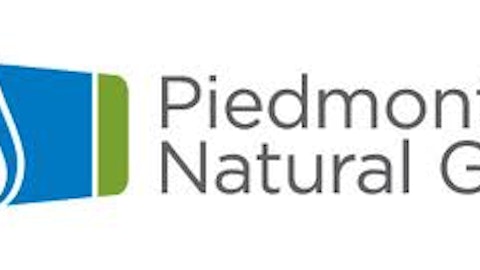
Since this deal involves the merger of two key players in the natural gas storage and transportation sectors, it could have far-reaching implications for many other master limited partnerships and natural gas extraction firms. Even those investors who might normally remain on the sidelines for a deal like this would do well to determine how the tie-up might affect their other holdings.
Crestwood Midstream Partners and Inergy
Crestwood Midstream Partners LP (NYSE:CMLP) and Inergy, L.P. (NYSE:NRGY) both provide gas-field services, storage and transportation to drilling and exploration companies across the United States. They have extensive pipeline networks and storage facilities that play an integral role in the ongoing development of the native gas industry. What’s more, they are both continuing to build out their networks in preparation for further development.
While Crestwood Midstream Partners LP (NYSE:CMLP) and Inergy, L.P. (NYSE:NRGY) operate in distinct areas of the United States, both of their home territories are rich in shale gas resources. For its part, Inergy, L.P. (NYSE:NRGY) maintains a robust storage and transportation infrastructure in the Marcellus Shale region of Pennsylvania and New York State. The bulk of its pipeline and storage facilities are located here, and the company primarily serves utility customers in neighboring northeastern, mid-Atlantic and Rust Belt states.
Meanwhile, Crestwood Midstream Partners LP (NYSE:CMLP) operates in a number of mid-continental locations, including the Barnett Shale of northern Texas, the Bossier Shale of Louisiana and the Fayetteville Shale of Arkansas. It also has pipelines and other infrastructure in southeastern New Mexico and northern West Virginia. Its pipeline network spans nearly 1,000 miles. With notable exceptions like the Bakken Shale and the Monterrey Shale, these two partnerships have a hand in much of the natural gas production that currently occurs in the United States.
Comparisons with the Competition
It might be helpful to compare these two firms with a similar firm that also engages in midstream support services, Martin Midstream Partners L.P. (NASDAQ:MMLP). Compared to Inergy, L.P. (NYSE:NRGY) and Crestwood, Martin’s market capitalization of $1.1 billion appears paltry. Relative to its 2012 earnings of about $28 million on gross revenue of $1.5 billion, Inergy’s take of about $560 million on revenue of $1.8 billion and Crestwood Midstream Partners LP (NYSE:CMLP)’s earnings of about $17 million on revenue of $214 million look favorable as well. However, Martin Midstream Partners L.P. (NASDAQ:MMLP) did see earnings growth of nearly 900 percent during the most recent quarter. Compared to Crestwood’s 60 percent decline, this makes the firm look significantly more attractive.
It is important to note that Martin Midstream Partners L.P. (NASDAQ:MMLP) does not directly compete with either of these firms in their core areas of operation. Although the company does operate some pipeline mileage, much of its activity involves storage and marine transportation.
Deal Structure
Since the two parties to this deal are MLPs that provide gas field support as well as transportation and other infrastructure services, it will be quite complex. Ultimately, Crestwood aims to take majority control of Inergy, L.P. (NYSE:NRGY) and move the combined partnership’s headquarters to Houston. The end result will see Inergy’s shareholders will get the better end of the deal; the completed transaction will see that they will own more of the combined firm than Crestwood Midstream Partners LP (NYSE:CMLP)’s former common stockholders.

